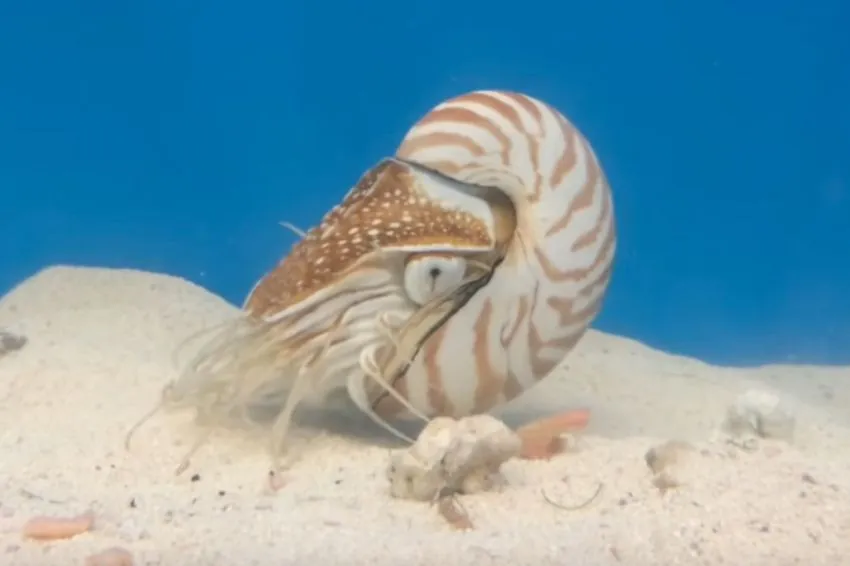Have you ever wondered if you can eat Nautilus? As a curious food enthusiast, I had the same question and decided to do some research.
Nautilus is a type of cephalopod that belongs to the family Nautilidae. They have been around for over 500 million years and are known for their beautiful spiral shells.
Can You Eat Nautilus?
Yes, Nautilus is edible. However, it is illegal to ship it, and it is classified as vulnerable, so Nautilus should be left alone. Nautilus can be fried or grilled; they taste a bit fishier than other cephalopods.
However, it’s important to note that Nautilus are not commonly eaten in many parts of the world, so limited information is available about their consumption.
According to Conscious Feast, the toxins in Nautilus need to be better understood, and there is no official recommendation on how much Nautilus is safe to eat. Therefore, it’s recommended to consume Nautilus in moderation and to avoid eating it too frequently.
If you’re interested in trying Nautilus, you can usually find it at Asian markets or specialty seafood stores.
It’s also worth noting that Nautilus are classified as vulnerable and are on CITES Appendix II, which means they’re illegal to ship and should be left alone.

What Does Nautilus Taste Like?
Nautilus is an edible cephalopod type that can be prepared in various ways. But what does it taste like? As someone who has tried Nautilus before, I can tell you that it has a unique taste that differs from other seafood.
When cooked, Nautilus has a firm texture similar to squid’s. The taste is slightly sweet and has a hint of saltiness, which makes it a great addition to many seafood dishes. Nautilus can be fried or grilled and pairs well with various sauces and spices.
Remember that Nautilus has a more robust flavor than other cephalopods like squid or octopus, meaning it might only be for some. Still, if you enjoy seafood with a more distinct taste, then Nautilus is worth trying.
Nutritional Value of Nautilus
Nautilus is a good source of protein, with around 16 grams per 100 grams of meat. It’s also low in fat and calories, making it a healthy option for those looking to maintain a balanced diet.
In addition to protein, Nautilus contains small amounts of carbohydrates and fat. However, it is not a significant source of vitamins or minerals.
It’s important to note that the nutritional value of Nautilus can vary depending on how it’s prepared.
Grilling, baking, and frying are all popular preparation methods, and each can affect the nutritional content of the meat.
If you’re interested in trying Nautilus, you can usually find it at Asian markets or specialty seafood stores.
When cooking Nautilus, follow proper food safety guidelines and cook the meat to the appropriate temperature to ensure it’s safe.
Potential Health Risks of Nautilus
While Nautilus is generally considered safe to eat, there are a few things to remember.
Firstly, Nautilus can contain high levels of cholesterol. If you are watching your cholesterol levels, consider limiting your intake of Nautilus.
Secondly, Nautilus can also contain high levels of sodium. If you are watching your sodium intake, you should limit your consumption of Nautilus or choose other seafood options that are lower in sodium.
Lastly, it’s important to note that Nautilus can also contain mercury. This toxic heavy metal can cause serious health problems if consumed in high amounts.
While Nautilus is not considered a high-mercury fish, it’s still important to limit your intake and avoid drinking it too frequently.
Frequently Asked Questions
As I researched whether Nautilus is edible, I encountered some common questions. Here are some of the frequently asked questions and their answers:
There is no known health risk associated with eating nautilus. However, since nautilus is classified as vulnerable, it is illegal to ship them, and they should be left alone.
Since nautilus is classified as vulnerable, it is illegal to ship them, and they should be left alone. Therefore, it is not recommended to seek out nautilus to eat.
No, nautilus cannot leave its shell. The shell is an integral part of the nautilus’s body, and it provides protection.
It is not recommended to keep nautilus in an aquarium. Nautilus requires a specific environment and diet to survive, and it is best to leave them in their natural habitat.
Nautilus can live up to 20 years in the wild.
Nautilus has few natural predators, including sharks and other large fish.
Nautilus is the only cephalopod to have a visible shell, which provides protection. Nautilus also has a unique eye structure that allows it to see in low light conditions.





Leave a Reply
You must be logged in to post a comment.